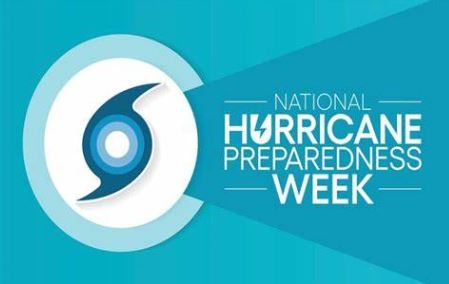Dining Room
Bracing for Impact: Comprehensive Hurricane Preparedness Strategies for Coastal and Inland Residents

As hurricane season approaches, preparedness is key for those living on the coast and in outlying areas affected by these powerful storms. Being well-prepared can significantly reduce the risks and stress associated with hurricanes. Here are essential tips and strategies to ensure safety and readiness.
For Coastal Residents:
1. Equipment:
- Emergency Kit: Include flashlights, batteries, a first aid kit, a multi-tool, and a manual can opener.
- Home Protection Supplies: Stock up on plywood or hurricane shutters, sandbags for flooding protection, and plastic sheeting for water leaks.
- Power Generators: Consider investing in a power generator for electricity during power outages, and ensure you have enough fuel in a safe storage area.
2. Food and Water:
- Non-perishable Food: Keep at least a 3-day supply of non-perishable food items such as canned goods, dried fruits, nuts, and energy bars.
- Water Storage: Store at least one gallon of water per person per day for at least three days for drinking and sanitation.
3. Shelter Plans:
- Evacuation Plan: Know your local evacuation routes and have a plan in place in case you need to leave your home. Practice this plan with all family members.
- Safe Room: Identify a safe room in your home, preferably without windows, where you can stay during the storm.
4. Insurance and Documentation:
- Insurance Coverage: Review your insurance policies to ensure they include coverage for natural disasters. Consider flood insurance, as it is usually not included in standard policies.
- Secure Documents: Keep important documents, such as birth certificates, property deeds, and insurance policies, in a waterproof and fireproof safe.
For Residents in Outlying States:
1. Equipment:
- Weather Radio: Keep a battery-powered or hand-crank NOAA weather radio to stay informed about hurricane updates and emergency information.
- Emergency Repairs: Have basic tools and supplies ready for minor repairs post-storm, such as tarps, nails, and hammers.
2. Food and Water:
- Emergency Pantry: Maintain a stock of non-perishable foods that can be easily prepared without electricity.
- Water Filtration: In addition to storing water, consider a water filtration system in case the water supply becomes contaminated.
3. Power Outages:
- Surge Protectors: Use surge protectors to safeguard electronic devices against sudden power surges.
- Alternative Lighting: Store battery-operated lamps and candles (with matches) in case of extended power outages.
4. Community and Communication:
- Community Plans: Engage with local community emergency response teams to participate in organized preparation activities.
- Communication Plan: Have a family communication plan that includes emergency contacts and meeting points outside of your immediate area.
Additional Tips for Everyone:
- Stay Informed: Monitor hurricane forecasts through official channels and community alerts.
- Pet Care: Prepare an emergency kit for your pets, including food, water, medications, and vaccination records.
- Mental Health: The stress from hurricane impact can be significant; ensure you have access to mental health resources and support systems.
By preparing adequately, residents can protect themselves, their property, and their loved ones from the harsh realities of hurricane season. Remember, the key to effective disaster management is early preparation.





